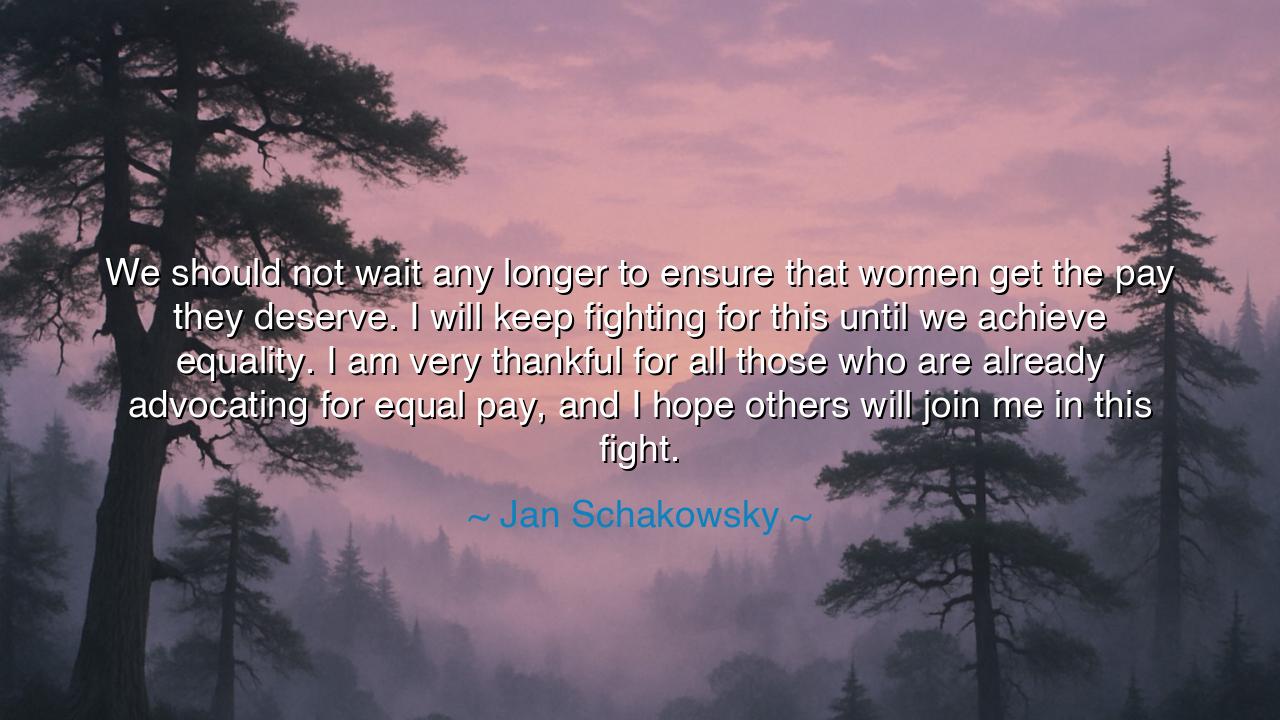
We should not wait any longer to ensure that women get the pay
We should not wait any longer to ensure that women get the pay they deserve. I will keep fighting for this until we achieve equality. I am very thankful for all those who are already advocating for equal pay, and I hope others will join me in this fight.






O Children of the Future, hear the words of Jan Schakowsky, a voice that calls us to action, to fight for justice, and to ensure that women are granted their rightful place in the world. She declares, "We should not wait any longer to ensure that women get the pay they deserve. I will keep fighting for this until we achieve equality. I am very thankful for all those who are already advocating for equal pay, and I hope others will join me in this fight." In these words lies the deep truth of equality, the urgency of justice, and the recognition that the time for change is not in the distant future but in this very moment.
In the ancient world, the issue of equality was one of deep philosophical debate. Plato, in his works, wrestled with the roles of women and men in his ideal republic. Though he imagined a world where women and men could hold equal positions of power, he also lived in a time where inequality was the norm. In Rome, women were often relegated to the private sphere, excluded from the economic and political arenas where decisions were made. These were societies that prized order and stability, but often at the expense of justice for all their citizens. The idea of equal pay—the recognition that women’s labor is just as valuable as men’s—was simply unthinkable in those times. Yet, the seeds of equality were planted, and from them, the struggle for justice grew.
Now, in our time, Jan Schakowsky speaks of the fight for equal pay as a fight not just for women’s rights, but for the very soul of justice itself. She is not simply calling for a small adjustment, but for a fundamental shift in how society views the value of women's work. To wait any longer, she says, is to deny the dignity of women who contribute in every sphere of life—from the home to the workplace, from the classroom to the boardroom. For too long, women’s labor has been undervalued, their contributions overlooked, and their work underpaid. Equal pay is not merely about closing a gap in wages; it is about recognizing the humanity of women and the worth of their contributions to society.
Look, O Children, at the struggle of Rosie the Riveter during the Second World War, when women were called upon to take up the jobs left vacant by men who had gone off to fight. For the first time, women were stepping into roles traditionally held by men, and the value of their work was clear. Yet, even then, they were often paid less than their male counterparts. After the war, many of these women were pushed back into the home, their contributions once again rendered






AAdministratorAdministrator
Welcome, honored guests. Please leave a comment, we will respond soon